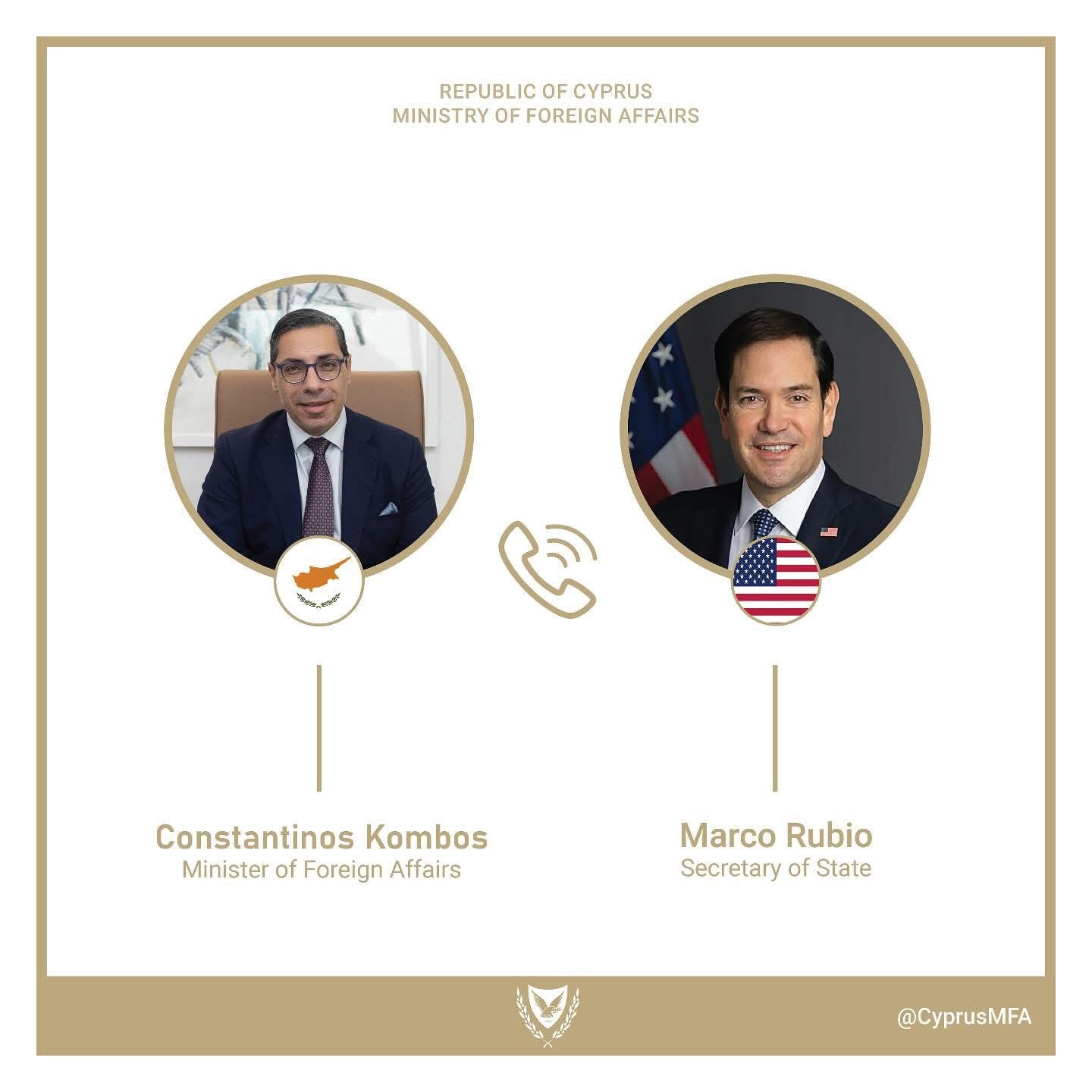Do we really want US attention on the Cyprob?
Attention from the White House might backfire
I have come down with some kind of semi-debilitating lurgy that has slowed me down, so this week’s article is a short one. It has less background and might have fewer links to demonstrate/prove my assertions than it would do normally. (Some of them take a very long time to find.)
On 7 September the Republic of Cyprus president, Nikos Christodoulides, let it be known that, as the media put it, ‘messages have been sent to the White House and US senators’ about the five Greek Cypriots who were arrested in northern Cyprus in July, while surveying their dispossessed property, and who are now on trial. Two days earlier the media reported that members of the US Congress (lower house of the legislature) had contacted the US’s equivalent of foreign minister, the Secretary of State, Marco Rubio, about the case. The arrests have been widely dubbed as “kidnapping” by the media.
I think it would be naive to believe that the abovementioned arrests are not linked with the pursuit of cases against (so far) non-Turkish Cypriots who have been involved in selling and developing Greek Cypriot property. (For a backgrounder on this and the entire Cyprus problem property issue go to this article written in May here.)
Among the cases that I can recall, two Hungarian women have already been jailed, a German woman has been arrested and the trial of the Israeli-Turkish-Portuguese developer, Simon Aykut, continues.
It is unclear whether the Greek Cypriots arrested were gathering information in order to pursue claims at the Immovable Property Commission (IPC) in northern Cyprus—something endorsed by the European Court of Human Rights (ECHR) as explained in the May article—or whether they were gathering information in order to give it to the Republic of Cyprus authorities, who would then go and arrest more people.
Were they pursuing an IPC case?
Two factors suggest that they were pursuing an IPC case, or at least keeping that option open, even if the Greek Cypriot media have curiously forgotten to mention that.
First, the Republic of Cyprus has now suddenly decided to look at compensating dispossessed Greek Cypriot owners for loss of use. Second, the Turkish Cypriot lawyer who was arrested together with the Greek Cypriots is one of the main lawyers helping Greek Cypriots with IPC claims. As far as I am informed, he did not transmit any information that would be used for anything other than IPC claims. Moreover, he has said publicly that the arrests risk harming the IPC.
Has the Turkish Cypriot administration scored an own goal?
If the Greek Cypriots were only pursuing an IPC claim, then the Turkish Cypriot administration of the unrecognized Turkish Republic of Northern Cyprus (TRNC) has scored an own goal. Turkey has spent a lot of time and effort and money to get the IPC accepted by the ECHR as an effective remedy provided by Turkey. And, as the most recent ECHR Cyprus property case demonstrates, the continuing recognition of the IPC is not guaranteed. Turkey would be very miffed if the Turkish Cypriot administration had messed this up.
Are the Greek Cypriots risking too much attention from the White House?
I also think that the Greek Cypriots have scored an own goal by trying to drag the White House into this. It is a tactical mistake for reasons I shall explain below.
UN missions at the moment are being subject to severe budget cuts, thanks not least to the lack of funds from the US, among other countries.
These very big cuts affect the Cyprus Good Offices Mission charged with facilitating a settlement of the Cyprus problem and the UN Peacekeeping Force in Cyprus (UNFICYP), which has been here since 1964.
Once they become public I am sure you will agree that some of the reported cuts are already pretty disturbing.
Do you really want the attention of the US president, Donald Trump, on an unresolved Cyprus problem right now? Let me explain.
Imagine Mr Trump is asked to look at the Cyprus problem, sees all that golf-friendly real estate in the buffer zone and decides that UNFICYP and the buffer zone should be abolished unless there is a solution to the Cyprus problem tomorrow which helps develop some of that land.
The Greek Cypriots say no to hard deadlines.
UNFICYP is abolished at the next renewal in January 2026. (It only takes on veto to abolish it.)
The UN buffer zone ceases to exist.
Turkey moves in to take the buffer zone ‘as a security measure’ because, well, because it can and most surely will.
Greek Cypriot 18 year-old military service recruits are now nose-to-nose with far better trained Turkish soldiers.
Do you really want the attention of Mr Trump on an unresolved Cyprus problem right now?
I could go on but the lurgy is demanding my attention. I think you get the point.



